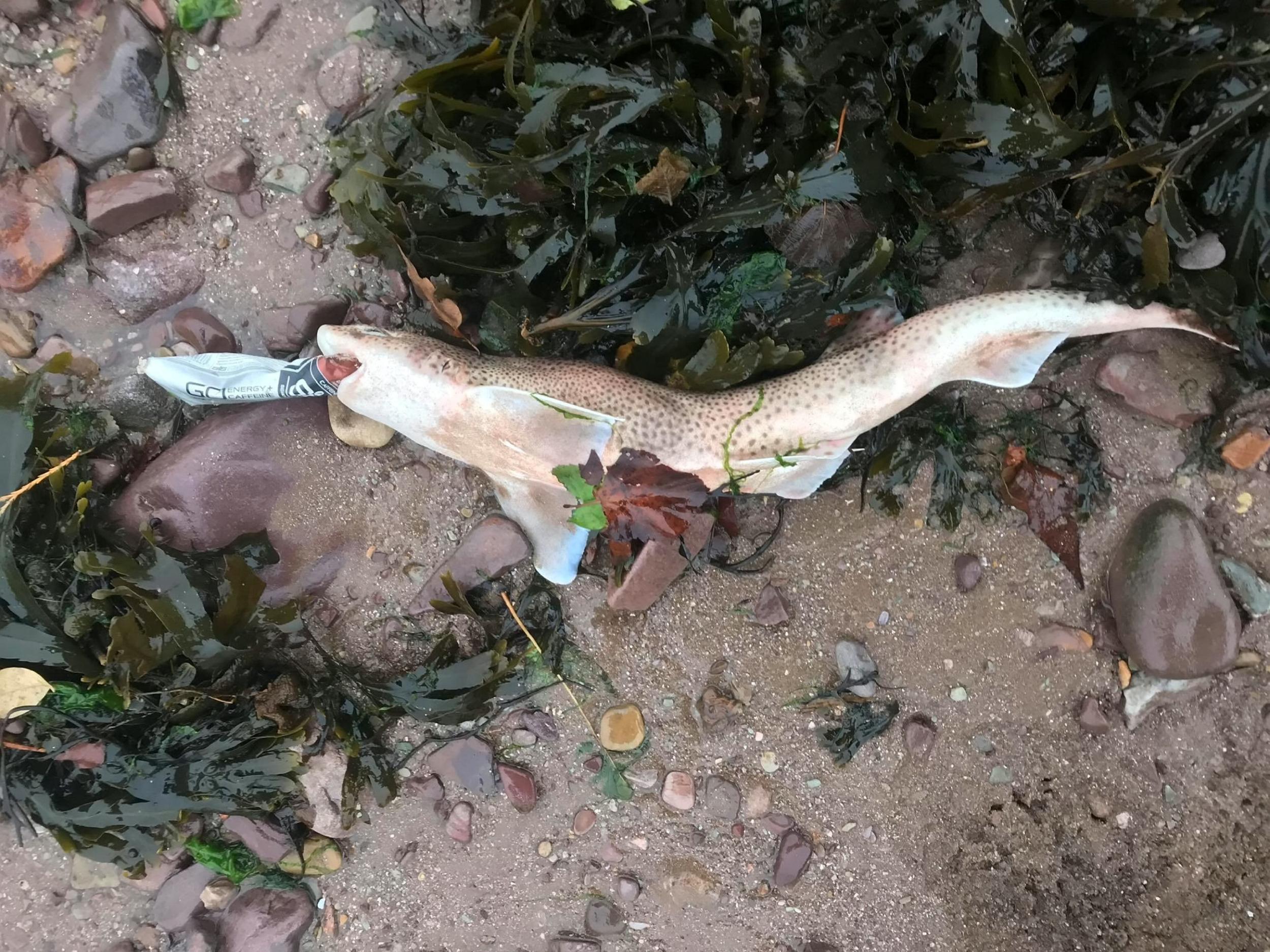Dead dogfish found with plastic wrapper stuck in its mouth in latest evidence of impact of marine pollution
Eight million tonnes of plastic end up in the world's oceans every year

Your support helps us to tell the story
From reproductive rights to climate change to Big Tech, The Independent is on the ground when the story is developing. Whether it's investigating the financials of Elon Musk's pro-Trump PAC or producing our latest documentary, 'The A Word', which shines a light on the American women fighting for reproductive rights, we know how important it is to parse out the facts from the messaging.
At such a critical moment in US history, we need reporters on the ground. Your donation allows us to keep sending journalists to speak to both sides of the story.
The Independent is trusted by Americans across the entire political spectrum. And unlike many other quality news outlets, we choose not to lock Americans out of our reporting and analysis with paywalls. We believe quality journalism should be available to everyone, paid for by those who can afford it.
Your support makes all the difference.Photographs of a dead dogfish found with a plastic wrapper stuck in its mouth have become the latest example of how human waste is affecting life in the sea.
The fish was found on Dunster beach in West Somerset with an SIS caffeine energy gel wrapper lodged in its mouth.
The energy gels are used by athletes including runners and cyclists, who have frequently been criticised following races and other events for unnecessarily discarding litter on the roadside.
Wildlife photographer Liz Elmont found the animal and spoke about the environmental impacts of single-use plastics and consequences of failing to dispose of waste properly.
She said: “As a nature lover and photographer I spend many hours outdoors appreciating the beauty around us. To see something so sad makes me livid.
“Just one moment of thoughtlessness on behalf of whoever discarded this wrapper has probably caused the unnecessary and cruel death of a living creature.”
She added: “One person carelessly throwing away one wrapper may be a small action in the overall scheme of things but when you add up how many times this could happen over a person's lifetime it’s off the scale.
“We need to start caring for our planet before it’s too late. We need to teach our children respect for nature to ensure things are better in the future and we can only do that by not being part of the problem ourselves.
“Dispose of your rubbish correctly, think about your actions, stay clear of single use plastics. It’s not difficult.”
Around 8 million tonnes of plastic waste are thought to end up in the ocean each year, and the number of microplastics in the ocean now outnumber the stars in the galaxy, according to the United Nations.
The organisation has said current pollution levels have put the world on track to see a greater weight of plastic in the ocean than fish by 2050.
Earlier this year UN experts called for concerted action to “beat plastic pollution”, saying far more needs to be done by governments to tackle the “scourge”.
SWNS contributed to this article
Join our commenting forum
Join thought-provoking conversations, follow other Independent readers and see their replies
Comments